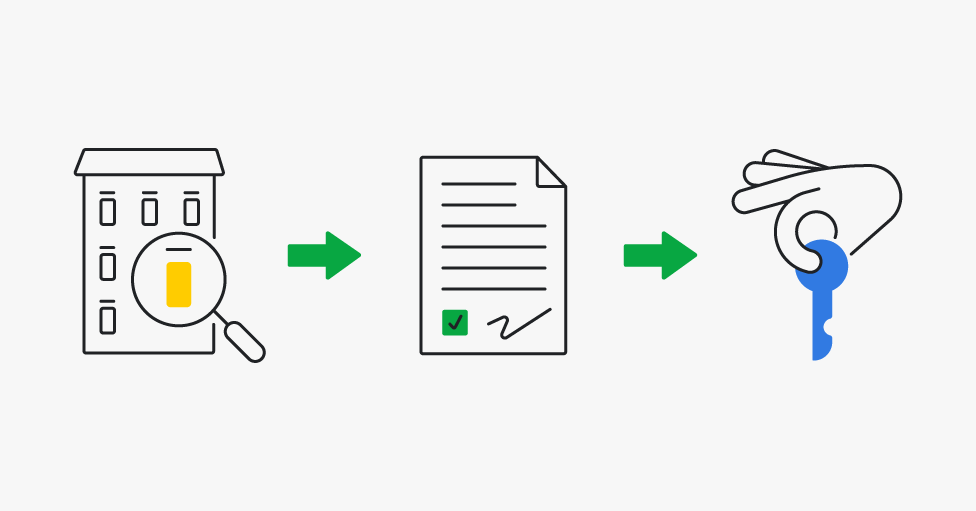Business & Finance
Simple Steps To A Real Estate Transaction With The Help Of An Agent

Key Takeaways For A Smooth Transaction
- Utilizing a real estate agent brings expertise and confidence to buyers and sellers alike.
- Agents help clients anticipate challenges, save time, and avoid costly missteps.
- Preparation, strategic planning, and transparent communication are vital to a successful transaction.
- Having an experienced advocate ensures clients reach their goals and easily navigate each stage.
Understanding The Real Estate Transaction Process
A real estate transaction is often one of the most significant financial events in a person’s life. Whether purchasing your first home, moving up, downsizing, or selling an investment property, the path from listing or searching to closing is filled with paperwork, negotiations, and important decisions. Trying to manage all of this without expert support can become overwhelming quickly. Working with an Edgewater real estate expert Jason Schonholtz is one way many people streamline the process and gain peace of mind. Professional agents have a deep understanding of regulations, market conditions, and the nuances that come with both buying and selling.
An agent guides you at every phase from the earliest steps—such as clarifying your goals, identifying market opportunities, and handling disclosure documents—to the final handshake at closing. Agents take much of the burden off your shoulders and offer advice to help you avoid the common pitfalls that trip up many first-timers and even seasoned investors. Their familiarity with the transactional timeline, requirements, and best practices makes them an invaluable resource.
Finding The Right Agent For Your Needs
Choosing an agent isn’t just about who has the most online reviews or the largest ad in your neighborhood. The process should be thoughtful and intentional because your agent will be your advocate and advisor throughout the transaction. Start by researching agents who are active in your area and property type. Use online platforms to read reviews, ask your community for referrals, and check professional credentials. Once you’ve compiled a shortlist, take the time to interview two or three agents. Ask about their recent transactions, availability, communication style, and connections within the real estate industry.
An ideal agent will demonstrate not only market knowledge and negotiation savvy but also integrity and patience. Finding someone you feel comfortable with is essential since honest conversations and trust will be central to your success. Good agents stay updated on current trends and have a network of reliable contacts—from lenders and inspectors to contractors and stagers—ensuring seamless coordination throughout each step.
Preparing Your Finances And Setting Your Budget
Financial readiness can make or break your transaction. If you’re buying, start with a mortgage pre-approval. This critical step clarifies your price range, boosts your credibility with sellers, and allows your agent to tailor the property search effectively. To get pre-approved, gather documents like pay stubs, tax returns, and statements of assets and debts. Sellers must also review their financials—considering costs like repairs, agent commissions, title fees, and moving expenses—to calculate expected proceeds and set realistic list prices. Many agents maintain relationships with mortgage professionals and financial advisors to assist you in building a strong financial foundation.
Your agent can also help explain fluctuating interest rates, closing costs, and down payment requirements. Being honest and transparent about your budget ensures no surprises later in the process and allows your agent to advocate best for your interests. By understanding your financial limitations and advantages up front, you set yourself up for smarter decisions throughout your real estate journey.
Starting Your Search Or Listing Your Home
Once finances are in order, the adventure of house-hunting or preparing a home for sale begins. For buyers, this involves collaborating with your agent to define your home necessities, preferred neighborhoods, and non-negotiables. Use your agent’s exclusive access to databases and networks to preview new listings before the general public sees them. Your agent will recommend staging strategies, curb appeal improvements, and professional photography for sellers. According to numerous industry studies, homes staged and professionally photographed usually sell faster and for more money.
- Buyers: Prioritize your must-have features, but stay open to compromise based on the realities of the market.
- Sellers: Declutter, depersonalize, and make minor repairs to attract the broadest pool of buyers.
- Stay in contact with your agent daily—fast communication is often key to winning offers or maximizing exposure.
Your agent’s local relationships and expertise will coordinate open houses, private tours, and carefully planned marketing.
Making Offers And Negotiating Terms
When you find “the one,” your agent becomes your strategist, preparing a competitive offer backed by current market data and knowledge of seller circumstances. They’ll also discuss the importance of including protective contingencies and reasonable deadlines. These negotiation elements are vital in ensuring your money and interests remain secure. The National Association of Realtors points out that flexibility and understanding local trends often lead to a deal that works well for both sides.
Negotiation isn’t always about price. It’s also about understanding timelines, including fixtures, inspection allowances, and move-out dates. A skilled agent will communicate confidently with the other party, arguing your case while remaining respectful and ethical. This gives you the upper hand in multiple-offer scenarios or tricky counteroffers.
Typical contingencies include satisfactory home inspections, the appraisal meeting the contract price, and the buyer obtaining final mortgage approval. Your agent will advise balancing assertive terms with reasonable flexibility, aiming for a signed agreement that satisfies both parties.
Home Inspections, Appraisals, And Due Diligence
Once your offer is accepted, the transaction moves into due diligence. Home inspections are conducted to uncover structural or mechanical issues, potential safety hazards, or deferred maintenance items. You’ll receive a comprehensive report, and your agent can help you interpret what is standard and what may cause concern. Appraisals, typically required by lenders, confirm a home’s value, protecting both buyer and lender from overpaying. If an inspection or assessment raises a red flag, your agent will help you renegotiate or, if necessary, walk away based on contract contingencies.
This phase is about managing surprises and ensuring you’re fully aware of what you’re purchasing or selling. Agents coordinate additional specialist inspections if needed and help buyers and sellers remain calm and focused on solutions rather than problems.
Closing The Deal
The closing stage is where all the groundwork pays off. You finalize your mortgage, sign a stack of legal documents, settle the transaction, and transfer ownership. Your agent collaborates with the title company, attorneys, and lenders to ensure every box and deadline are checked. Detailed preparation helps prevent last-minute issues. The Consumer Financial Protection Bureau’s guide is an excellent place to read more about what to expect on closing day.
- Bring a government-issued photo ID, certified funds for closing costs, and any requested paperwork.
- Check your bank’s procedures for wire transfers if funds are due at closing to avoid potential fraud.
- Confirm your move-in or move-out timelines and utility transfers in advance of signing.
A final walkthrough with your agent ensures the property’s condition has remained unchanged since the inspection, providing peace of mind as you complete this major milestone.
Common Questions About Using A Real Estate Agent
One frequent question is about agent compensation. In most cases, agents earn a commission from the proceeds when the sale closes, typically paid by the seller and split with the buyer’s agent. Some agents may offer different fee structures in select markets. After closing, a good agent often continues to chat, offering homeownership tips, market updates, and ongoing support, becoming a valuable resource long after the transaction. If you’re pleased with your support, passing along a recommendation or online review is one of the best ways to show appreciation, and you’ll help others in your community.
Final Thoughts
Buying or selling real estate doesn’t need to be a source of stress and confusion. By selecting a trusted, knowledgeable agent, preparing your finances, and following a transparent, organized process, you can confidently achieve your real estate goals. Every transaction is unique, but consistent communication and strategic planning will guide you past obstacles and straight toward a successful closing—and the beginning of your next chapter.















